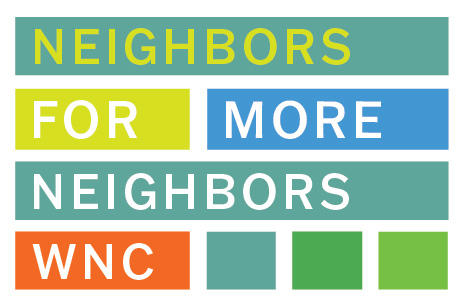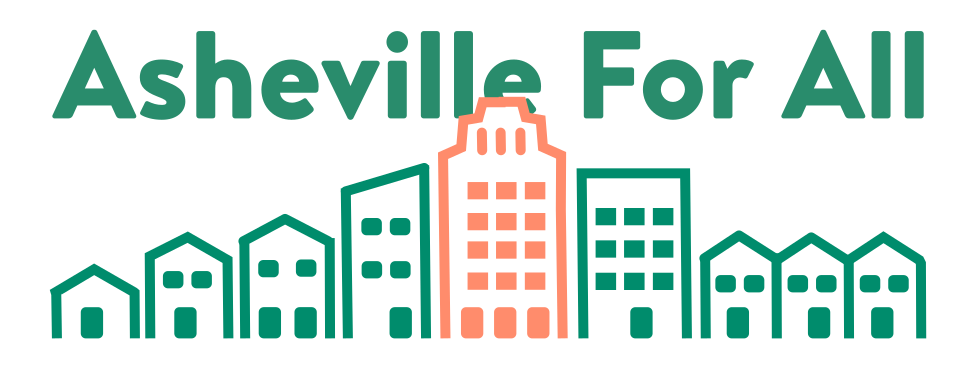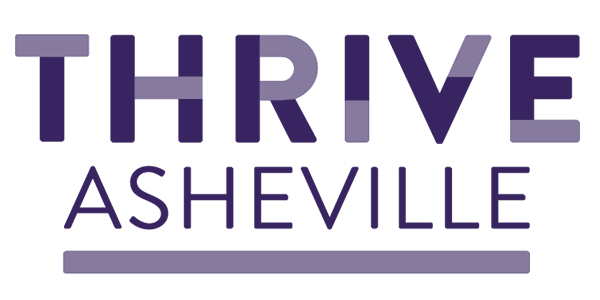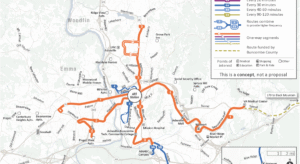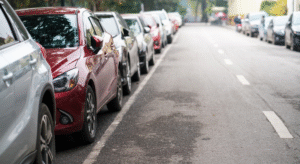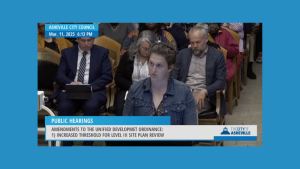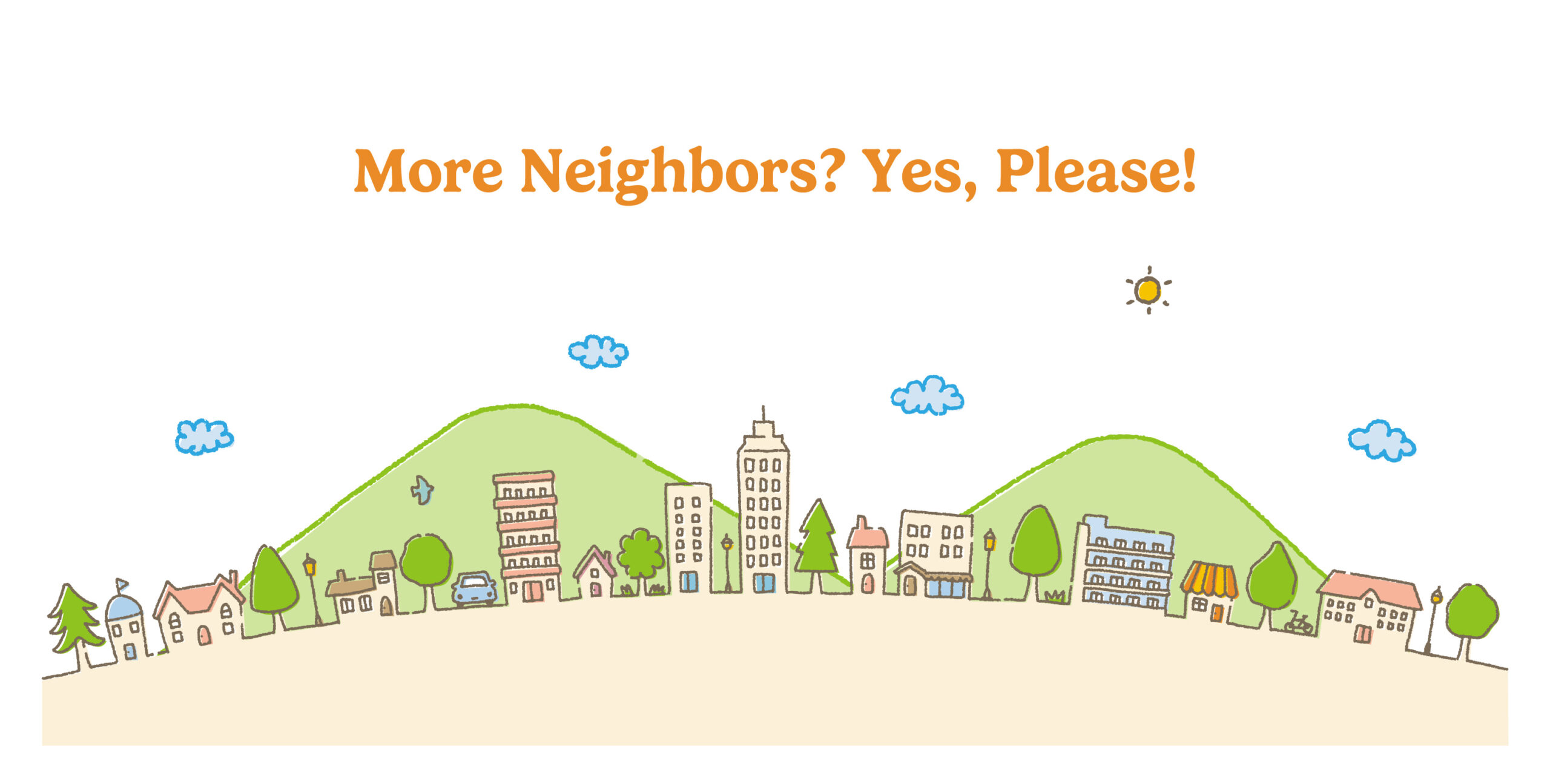
Neighbors for More Neighbors WNC works toward a future where we all have home choices that meet our needs in neighborhoods that keep us connected.
Those neighborhoods may include great transit, a community where family and friends are neighbors, or complete neighborhoods with walkable errands and jobs. As we move through our lives, we find smaller and larger homes as our needs change, while staying in communities we love. We imagine a day where this is true for everyone: owners and renters, and people of all ethnicities and income levels.
FEATURED EVENT
Stay tuned for 2025 event announcements
WHO WE ARE
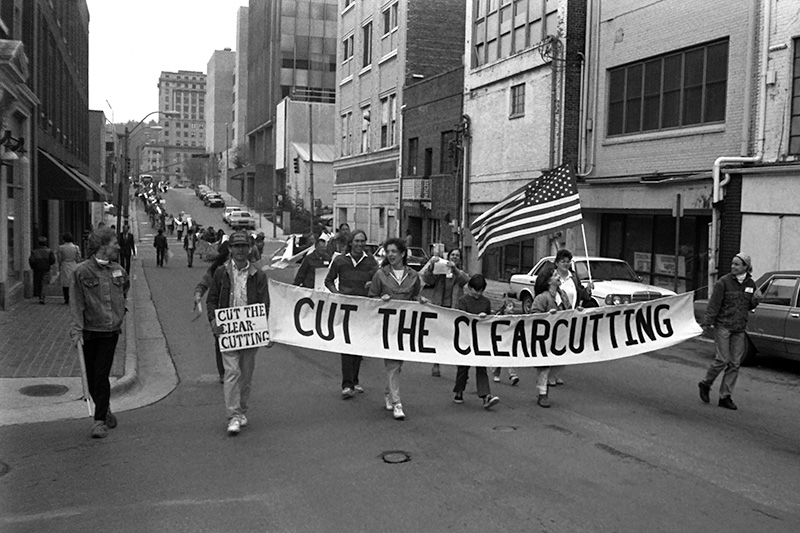 Neighbors for More Neighbors WNC is a program of MountainTrue, a regional nonprofit organization championing resilient forests, clean waters, and healthy communities in the Southern Blue Ridge Mountains. MountainTrue has been working to protect the places we share since 1982 by fighting threats like oil and gas extraction within our region’s National Forests and also by promoting responsible land use according to smart growth principles.
Neighbors for More Neighbors WNC is a program of MountainTrue, a regional nonprofit organization championing resilient forests, clean waters, and healthy communities in the Southern Blue Ridge Mountains. MountainTrue has been working to protect the places we share since 1982 by fighting threats like oil and gas extraction within our region’s National Forests and also by promoting responsible land use according to smart growth principles.
Neighbors for More Neighbors WNC is an expansion of our Healthy Communities program, and we hope you’ll join us in supporting policies that protect and create homes for our neighbors in places that reduce our collective carbon footprint.
Our Platform
We know that healthy communities exist within the context of a healthy environment — and right now, both are threatened. There is a housing shortage across the country, with many hard-working families unable to find a place to live. There is also a climate crisis, with greenhouse gas emissions threatening the stability of all our planet’s ecosystems and biodiversity. We believe that the following principles represent one piece of the solution to both of these crises:
- Re-legalizing a variety of modest, mid-size home choices, like accessory dwelling units, duplexes, triplexes, and townhomes in residential city neighborhoods.
- Protecting our farms and forests for carbon sequestration by building up within our existing cities and towns, instead of out where new land must be cleared, new roads built, and reliance on personal vehicles increases.
- Preserving existing homes and buildings is an efficient use of resources, generates less waste than new construction, and is an important way to prevent displacement of our neighbors.
- Investments in multi-modal transportation networks like transit and bike lanes allow more families to live in close proximity to town centers without increasing vehicular traffic and congestion.
Show your support & endorse the N4MNWNC platform
Our Partners
We collaborate with the following partners who support building more housing options for our communities in a sustainable way that also protects the natural beauty and vitality of our mountain region. We all agree that more homes are needed in our communities and that building various housing types in places where infrastructure already exists will improve the health and quality of life for existing and new neighbors.
LATEST NEWS
Take the Survey: Influence Transit Planning for the City of Asheville
Asheville City Council Makes Big Changes to Support Housing!
Resources
How the US made affordable homes illegal
Vox on YouTube, August 16, 2021
Vox provides this video explainer about how exclusionary zoning has created a housing shortage that affects everyone.
Yes in Our Backyards. It's time progressives like me learned to love the green building boom.
Mother Jones, April, 2023
Bill McKibben writes on the need to see our backyards as global and to be open to sharing our space with new neighbors.
There is Unrest in the Urban Forest
Strong Towns, January 12, 2022
This article from StrongTowns explains how the tension between tree preservationists and pro-housing advocates represents a false choice between trees and homes.
Housing Needs Assessment 2021 for Western North Carolina
Bowen National Research Report for Dogwood Health Trust, 2021
A housing needs assessment for the 18 counties and the Qualla Boundary tribal trust land within Western North Carolina.
FOLLOW US ON SOCIAL MEDIA
Problem displaying Facebook posts. Backup cache in use.
Click to show error
